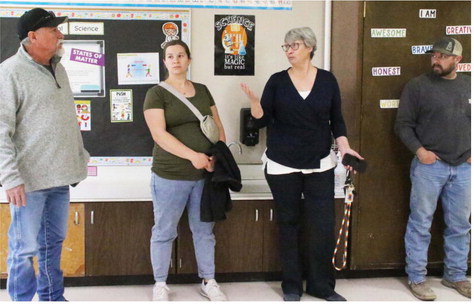Health Officials Confirm Cases Of Measles
Montana Health officials have announced five confirmed cases of measles in Gallatin County. The Montana Department of Public Health and Human Services along with the Gallatin City-County Health Department in Bozeman confirmed its the first instance of the highly infectious disease since 1990.
The individuals are children and adults who were exposed to measles while traveling outside of Montana. The cases reside in Gallatin County and are currently isolated at home. All five individuals are unvaccinated, or vaccine status is unknown.
The Gallatin City-County Health Department continues to assess any potential exposures while the individuals were contagious and are contacting the people who may have been exposed, commonly referred to as “contact tracing.” People potentially exposed are being provided with information about the exposure date and disease symptoms to watch out for.
The Gallatin health department has determined that there are points of exposure to the general public. Potential exposures to the public can be found on the GCCHD website and will be updated as needed or as more information becomes available. The spread of measles can occur before people know they have the disease, and before any rash appears. The times listed on the website include the period when the exposure occurred and two hours after.
Individuals who are immune to measles through vaccination, laboratory evidence of immunity, laboratory confirmation of disease, or were born before 1957 are not considered at risk for infection. Individuals without prior measles infection or vaccination have a 90 pecent likelihood of contracting the disease if exposed.
“While it is unfortunate to have cases of measles after 35 years of disease inactivity in Montana, we have been working diligently with our local partners to prepare,” said DPHHS Public Health Physician Dr. Maggie Cook-Shimanek. “We are confident that our public health and clinical partners will work together and address this situation as quickly as possible. It is important for everyone to know their vaccination status and to visit with their health department or health care provider if they are unsure.”
If you are unsure of your vaccination status, here are a few places you can review: Call your old high school, college, or university and ask if they have vaccination records.
Contact your doctor’s office, urgent care, or pediatrician. Even if you have not been there in years, they may still have records.
Reach out to the health department where you grew up.
Check your home state immunization registries.
Measles is a highly infectious airborne disease that typically begins with a fever, cough, runny nose, red eyes, white spots in the mouth and a red rash that appears about 14 days after exposure. The rash usually starts on the face and spreads downward to the rest of the body. It is particularly dangerous for infants for whom vaccination is generally not recommended until 12 months of age. Maintaining a high level of vaccination in the community helps protect infants who are too young to be vaccinated, as well as individuals who cannot be vaccinated for medical reasons.
“Measles is highly contagious and highly preventable with vaccination, and ensuring people are immunized remains our best defense. If people are unable to find their vaccine records, there are no contraindications to receiving an additional dose,” said Dr. Peter Bulger, Gallatin City-County Health Department medical director.
Measles continues to be prevalent in many regions worldwide, resulting in an estimated 300 deaths every day. Cases in the U.S. are generally rare but have been increasing in recent years.
The best way to protect against measles is vaccination. No changes have been made to the existing measles, mumps, and rubella vaccine recommendations in the United States. Two doses of MMR, a measles-containing vaccine that protects against measles, mumps and rubella, are 97 to 99 percent effective in preventing measles. Measles vaccines have been available in the U.S. since 1963, and two doses have been recommended for children since 1989.
If you are in need of the MMR vaccine, please call your primary care physician as soon as possible.
“We are actively working with individuals who are experiencing symptoms,” said Lori Christenson, Gallatin City-County Health Officer. “We greatly appreciate the cooperation of those involved in helping mitigate further exposures. We encourage anyone who is not vaccinated or unsure of their vaccination history to consider vaccination and to contact your health care provider or GCCHD. By getting vaccinated we protect ourselves and others around us from infection.”
There is no cure for measles once the outbreak has started. It’s a virus and medical professionals treat the symptoms related to the infection.
For more information about measles and the measles vaccine, visit the state health department’s website. Additional information can also be found on the CDC’s website.
